
Patrice Sinoquet loves the United States of America. In this bleak corner of northern France, he stands out in his Harley-Davidson jacket, his arms tattooed with Old Glory and a Route 66 sign. But Sinoquet’s fondness for the U.S. took a jolt earlier this year, when his Michigan-based employer, Whirlpool Corp., announced that it was shutting its factory here and moving production to Poland. Workers there earn significantly less than their French counterparts and have less robust benefits and protections, yet Poland conveniently sits within the European Union’s borderless, tariff-free zone.
“This is the story today in France,” says Sinoquet, 54, who started working at the plant at age 20 and met his wife and many of his friends on the assembly line. “Since 2000, we workers have been thrown out like Kleenex,” he adds, sitting in the reception area of the factory. “And since 2008, there have been no jobs. Here in France there is no work, no enterprises.”
Sinoquet’s grim assessment is echoed across France’s old industrial heartland, an area that spans some 200 miles near the Belgian border. Much as voters in the rusting factory towns of Ohio, Pennsylvania and Michigan helped Donald Trump defeat the Establishment in the U.S. last year, the French living in these neglected “departments” threaten to torpedo the dual-party establishment that has governed France for generations, and send a shock through the rest of Europe too.
As the French get ready to pick their next President in two rounds of voting in April and May, millions of voters exasperated by the failures of those two parties seem willing to back an insurgent to run the country. The candidacy of far-right National Front leader Marine Le Pen has been nourished by a groundswell of support in hard-hit towns across France. Now, with just weeks to go before voting begins, Le Pen is a favorite to clinch the first round against a raft of seasoned insiders, and could yet seize the presidency itself in the final round on May 7.
Le Pen wants France to have much looser E.U. ties or to withdraw completely from the union, and to reimpose border controls. She also wants priority for French job seekers and to bring back a national French currency, like the franc. Her unalloyed nationalism includes banning headscarves and yarmulkes in public and burkinis on beaches.
Until now, many supporters of left- and right-wing mainstream parties have vowed to vote against her in the final round, in order to shut her out, as they did with her father Jean-Marie Le Pen in 2002 and with her during regional elections in 2015. But a series of mishaps and scandals has made that promise undependable this time around. Polls show her losing the second round. But those examining poll numbers warn that dismissing a Le Pen presidency could prove foolhardy; just ask those who believed that a Trump victory could never happen.
Like Trump’s victory, a win by Le Pen would have a seismic impact far beyond the country’s borders. A Frexit and ditching the euro would be a grievous blow to an E.U. reeling from Brexit, severely weakening it. Deutsche Bank warned in late February that the impact of a President Le Pen’s Frexit push could be “beyond a ‘Lehman’s moment,'” referring to the collapse of Lehman Brothers investment bank in 2008, which heralded the deepest global recession since the 1930s.
Inside France’s Rust Belt




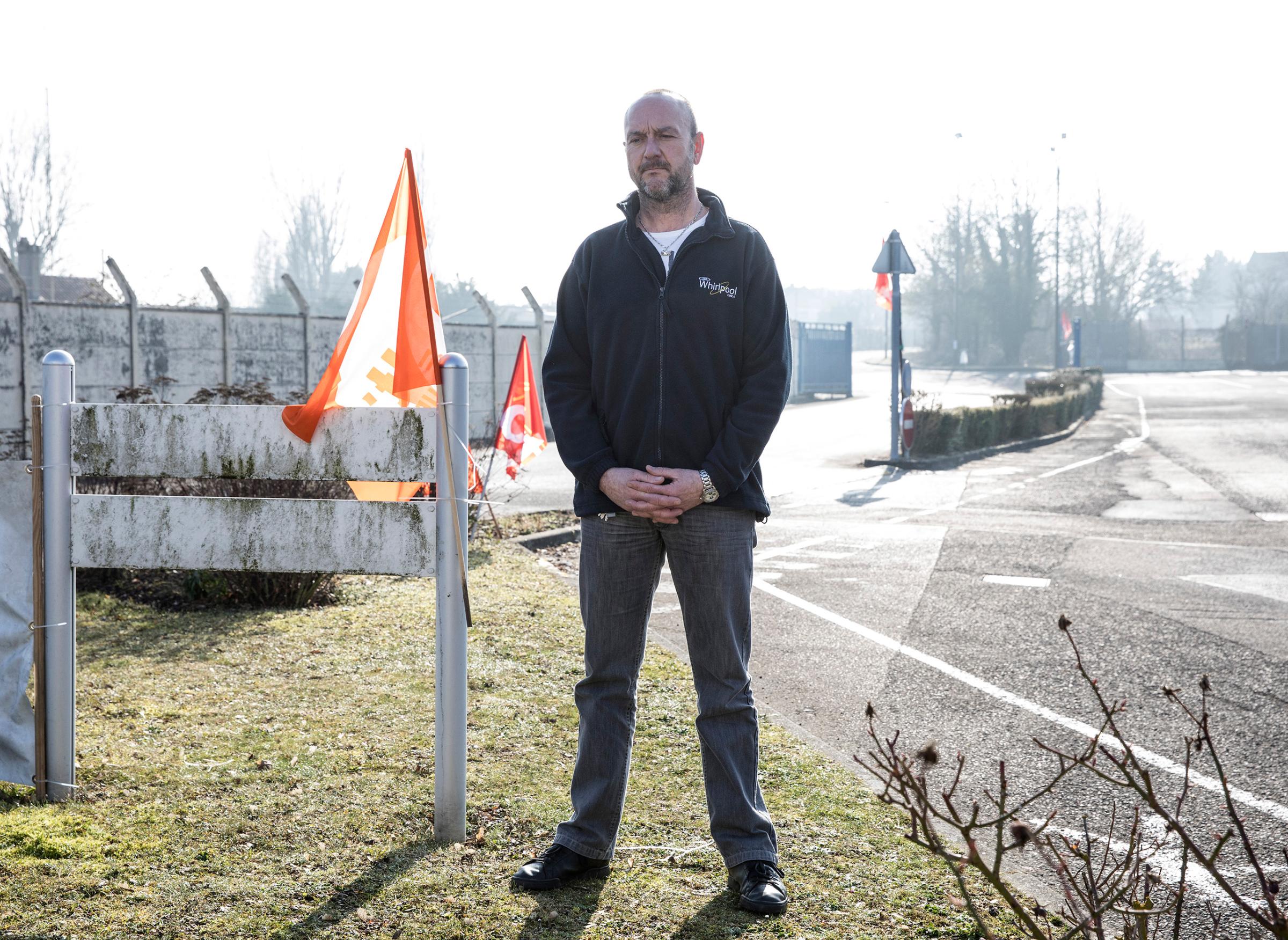
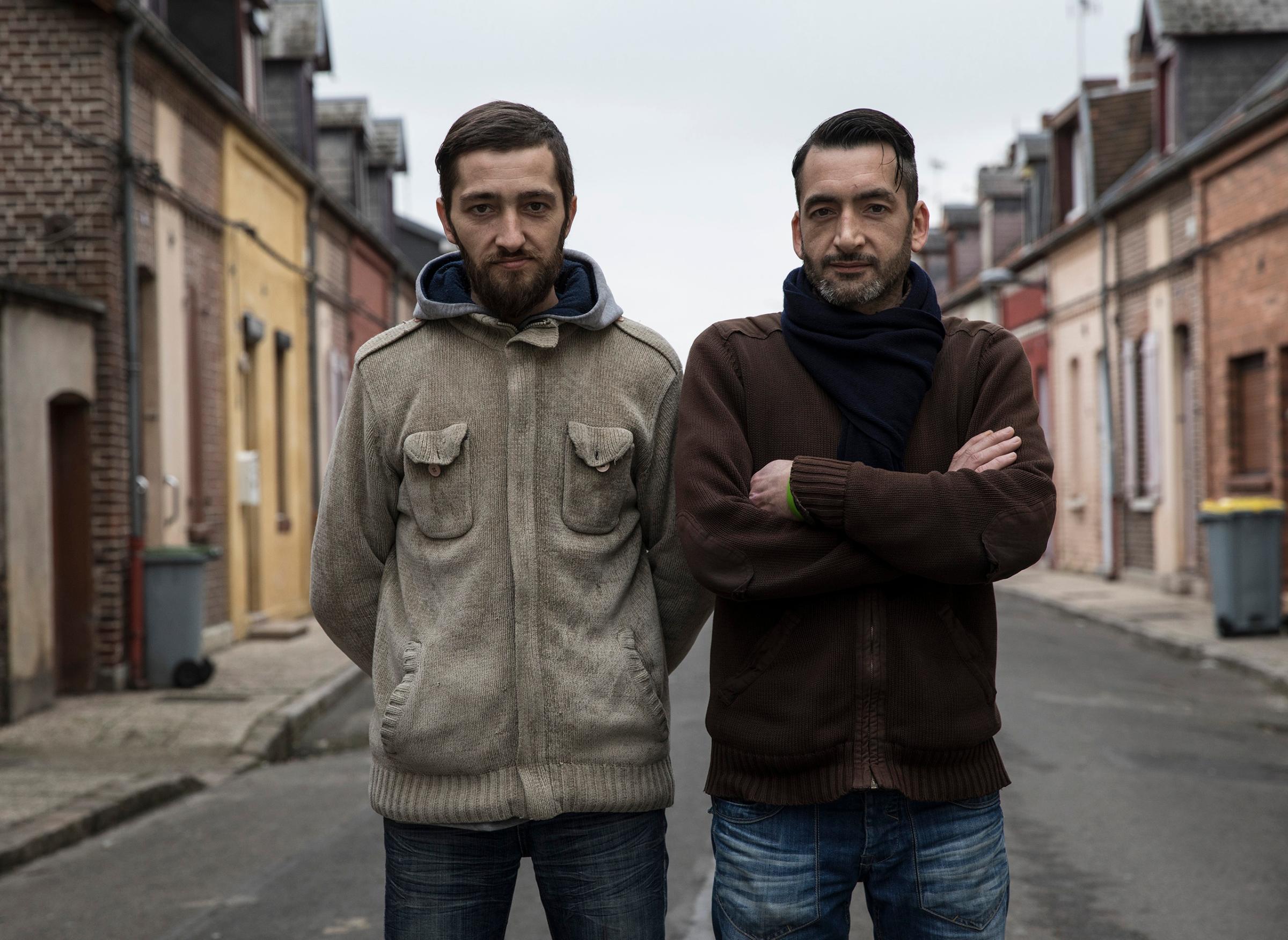

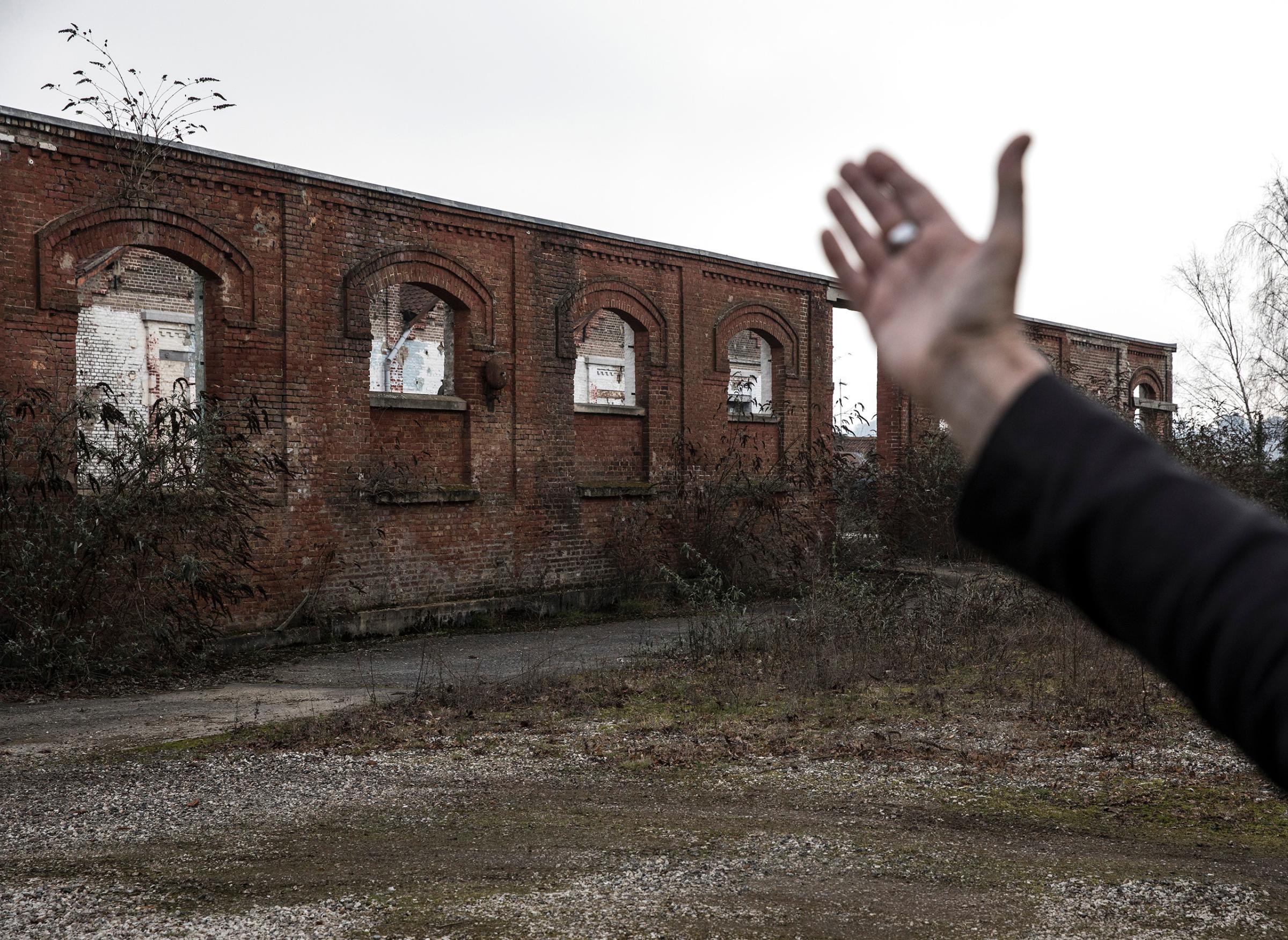

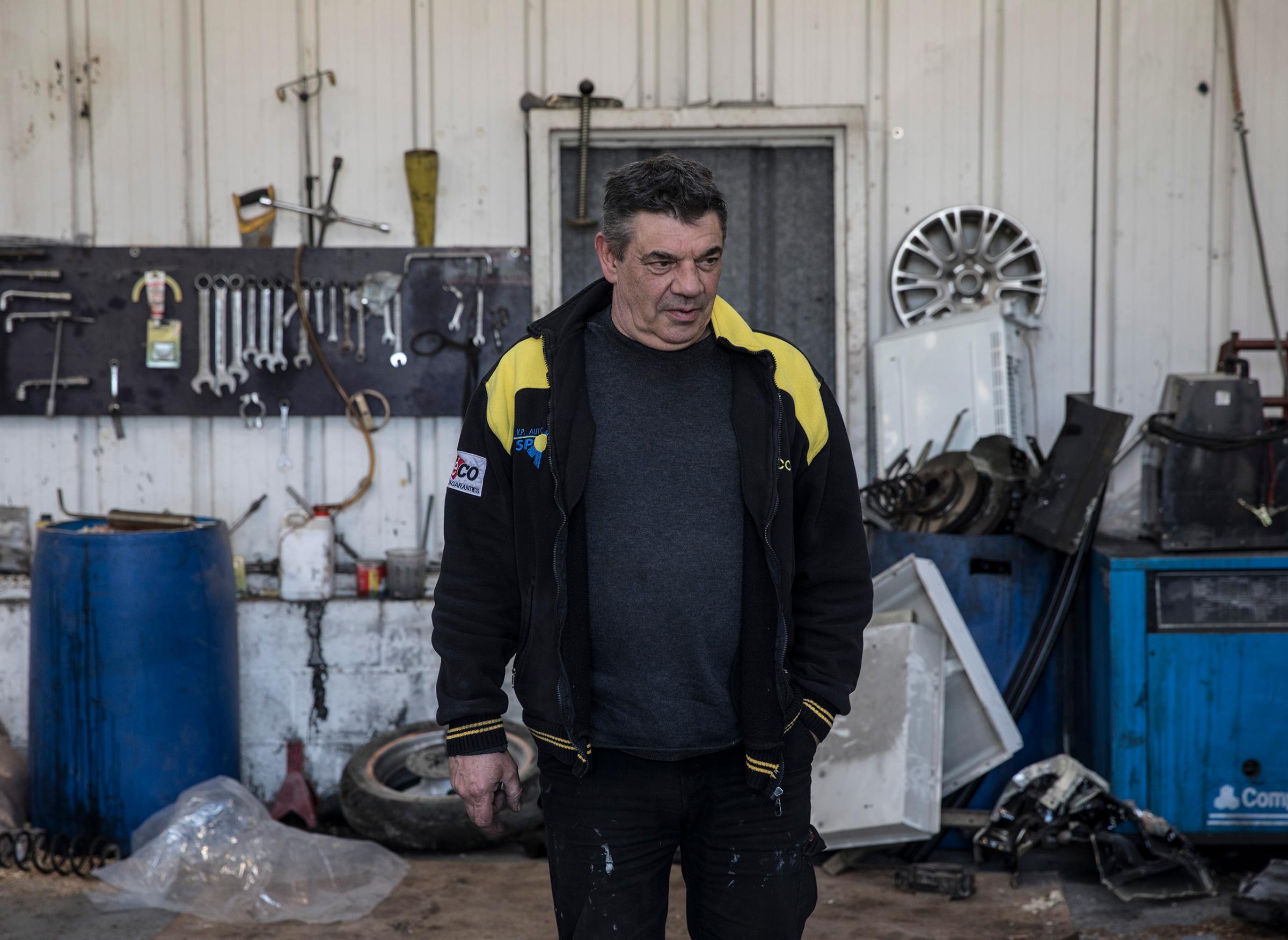

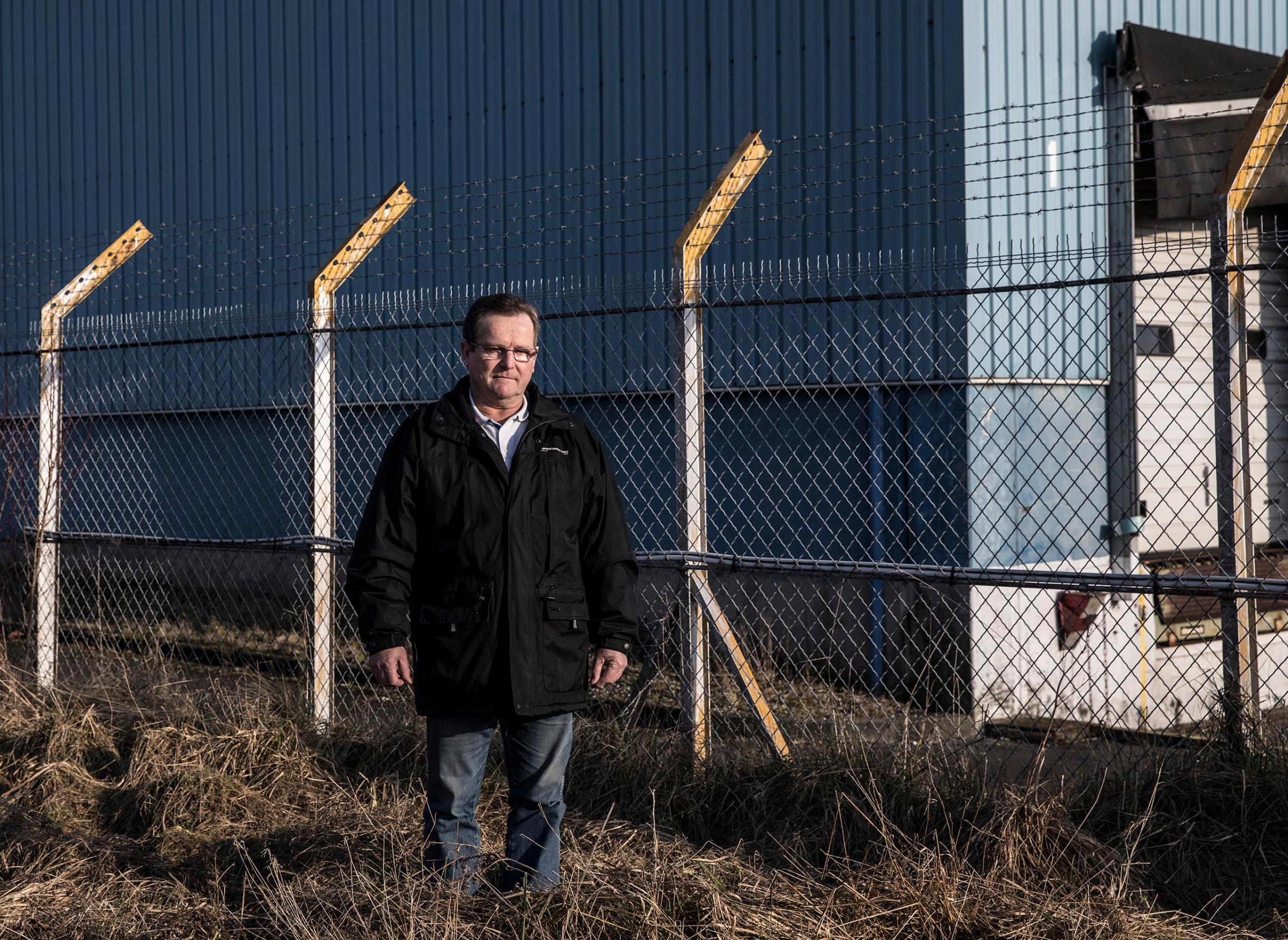

Those living amid the shuttered factories around this part of northern France have heard all the doomsday predictions before. But to many, they sound unconvincing, an attempt to divert them from their intended vote. “Left, right, left, right, the parties have endured for 40 years. People are sick of both,” says Philippe Théveniaud, regional head of the French Confederation of Christian Workers, or CFTC, which represents the Whirlpool workers in Amiens. Explaining Le Pen’s rising popularity here, he says, “This is what is remaining.”
Seizing on the disaffection, Le Pen has lumped together the mainstream parties in her speeches as one hopeless enterprise that voters ought to shun. “Her message is simple: ‘Left and right are the same corrupt establishment,'” says Nonna Mayer, a political science professor at Sciences Po Institute in Paris. “They say to people, ‘The others have failed. You have no choice but to try us.'”
That argument sounds logical to many voters after years of economic paralysis. France, the world’s sixth-biggest economy, has sputtered along for years with virtually no growth. Average unemployment rates have hovered around 10% for several years, and in this corner of France, known as the Somme, they are higher. The question now is whether disaffection with the status quo is strong enough to convince voters to place their bets on a high-risk choice.
When TIME last traveled around this area, in 2014, it was with Le Pen herself. France was struggling in a recession, and she offered what sounded like an outlandish prediction. “The National Front will be in power within 10 years,” she told me then, adding that her party had already become “the center of gravity in French politics. On both right and left, they are taking our ideas.” Nearly three years on, Le Pen, now 48, has been proved right in one of those predictions: she is now at the center of France’s political churn. Through months of campaigning, the arguments from her rivals, left and right, have essentially boiled down to one question: Who can best halt Le Pen’s rise?
No one knows, so far. In a country famous for breeding a small, cloistered political class, French politics has been dully predictable for decades, with power trading back and forth between the Socialist Party and conservatives. But this campaign has upended many precedents, beginning in December, when the deeply unpopular President François Hollande announced he would not seek a second five-year term–the first French leader in decades to decline to run for re-election. Since then, almost every certainty about who the next French President will be has crumbled in a near incessant saga of scandal and voter anger–in some ways echoing last year’s U.S. campaign that obliterated every Republican front runner, until only Trump was left standing.
First, former President Nicolas Sarkozy, a conservative Republican, and his socialist rival, former Prime Minister Manuel Valls–widely assumed to be the top contenders–were both trounced in party primaries, leaving Republican François Fillon, Sarkozy’s former Prime Minister, as the odds-on front runner. But Fillon’s ratings have slid badly since allegations in January that, during his time in office, he paid his wife, adult daughter and adult son nearly $1 million of government money for jobs they never performed; he denies it. On March 14, a judge formally charged him with misusing public funds.
Le Pen’s chief rival is instead another relative outsider: Emmanuel Macron, Hollande’s former Economy Minister, who at 39 is waging his first-ever election campaign. Macron too is attempting to rip up years of political tradition, with a new political movement, En Marche! (roughly, On the Move!). He told TIME last year that France’s political system, with its lavish benefits and watertight labor protections, was “sclerotic” and “no longer sustainable.” But Macron is an unlikely insurgent. A liberal economist and former Rothschild & Co. banker, he is heavily pro-E.U. and favors global trade deals. Fluent in English, his frequent references to French history and philosophy have irked Le Pen, who has lashed out at him as a disconnected elitist in thrall to globalization.
The weeks of scandal have lifted Le Pen’s campaign (even though she too is being investigated, for misuse of E.U. funds, an allegation she denies). She has stormed across the country, pounding the theme that politicians have subsumed the needs of their French citizens to the dictates of Brussels, where the E.U. is headquartered. She alone, she says, can defend “the France of the people” and return the country to them.
Her timing could hardly be better. A deep unease has washed across France amid the momentous events of the past two years: the terrorist attacks in Paris and Nice, which killed a total of 231 people, and the influx of some 1.3 million migrants into Europe. Both have been deeply unsettling in this nation of 67 million, many traditionally Catholic. In areas already hard-hit economically, both terrorism and the migrant crisis have shaken loose strong fears of being overwhelmed by outside forces, feeding into years of the Front’s anti-immigrant talk.
Still, locals insist the support for Le Pen is not confined to unemployed people or white racists, as they say their detractors have suggested. The Le Pen supporters TIME encountered in the Somme included a store owner who had emigrated from Ivory Coast and a computer technician from Cameroon. Both said they liked her fierce patriotism–a message Le Pen has made the theme of every speech.
“We are for local, against global!” Le Pen thundered onstage to thousands of cheering supporters when she formally launched her campaign in Lyon on Feb. 5. Spotlighted alone on a pitch-dark stage, she told the crowd that “economic globalization” and “Islamic fundamentalism” were “working to make our nation disappear.” She was framed against her campaign slogan, “au nom du peuple”–in the name of the people. Le Pen’s “France first” strategy, with its threats to companies that offshore French jobs, will sound strikingly familiar to Americans–and that is no accident. Le Pen, alone among French politicians, hailed Trump’s victory as a triumph for her own ideas, and a sign that her own improbable presidential campaign might prevail.
Within moments of Trump’s victory being declared on Nov. 9, Le Pen’s closest aide and strategist, the Front’s vice president Florian Philippot, tweeted: “Their world is collapsing. Ours is being built.” The following week, Le Pen told me in an email exchange that just as Americans had chosen Trump, so too would French voters “take their destiny into their own hands” and vote for her. (Le Pen dropped by Trump Tower in New York City in January but did not see the President.)
Around Amiens, the message of taking back control has hit home. For generations, the area’s left-wing residents have elected communist mayors and socialist parliamentarians. Its firebrand unions have engaged in some of France’s fiercest battles in recent times, as multinational companies shift production to cheaper countries. In 2014, a year after Goodyear announced it was shutting down its Amiens tire factory after nearly 50 years, laying off 1,173 workers, union activists burned barricades, fought pitched battles with police and kidnapped two executives. Today weeds push through the fences of the abandoned plant. The desolation is a familiar sight to old-timers. “This was a deeply industrial area, with thousands of workers, who have lost everything,” says Jean-Paul Grumetz, a local historian, as he walks me around deserted redbrick factories in Flixecourt, a village 14 miles west of Amiens, once home to a thriving textile industry. “This is our Detroit.”
And, as in Michigan, which voted Republican in the 2016 presidential election for the first time since 1988, political opinions here have drifted rightward as disillusion has hardened. “My grandfather was a communist. Me, I will vote for Le Pen,” says Jean-Pierre Gourdet, 45, a quality team leader at the Whirlpool factory, where his father and grandfather also worked; he and his father both met their wives in the factory. Gourdet says his far-right views mark a sharp break with family tradition. He explains that his grandfather lived before the E.U.’s passport-free labor market shifted thousands of French jobs to Eastern Europe. Now, he says, he is drawn to Le Pen “because she says, ‘France first, others afterward.'”
Whirlpool’s Jan. 24 announcement that it would shut its French factory handed Le Pen a potent campaign weapon. Only 290 Whirlpool workers will lose their jobs (though more subcontracted workers will likely follow), and the factory is set to remain open until June of next year. But for Le Pen, the decision to move production to Poland is living proof of her key message: the E.U. is killing French jobs.
Le Pen supporters in Amiens have seized the moment. In late February, they gathered outside the Whirlpool gates as shifts changed, pressing workers to join their cause and inviting them to have lunch with Le Pen’s deputy Philippot, who was driving up from Paris the following day. Several workers stopped to talk, expressing curiosity and taking the Front’s leaflets, which read, Bring down unemployment: It’s possible! The flip side laid out Le Pen’s plan for “economic patriotism,” including now familiar promises: closing France’s borders, ditching the euro and giving priority to French companies.
“The National Front is the only party that gives people hope in these elections,” says Éric Richermoz, 24, handing out leaflets outside the factory. Richermoz, who recently graduated from business school and speaks flawless English, looked in his suit and tie like he might be one of Whirlpool’s young managers. In fact he is a National Front candidate for the National Assembly in elections in June. He says the Front enjoys growing support inside factories like Whirlpool’s. “We don’t think that finding workers that are cheaper and cheaper, with worse working conditions, is a good thing for the people of the world,” he says.
That same message dominated lunch the next day, in the small town of Oresmaux, a half-hour drive south. No Whirlpool workers were among the 200 or so guests, but the speeches all trumpeted their cause. Support Whirlpool read the banner hanging across the stage. Underneath, next to a large photo of Le Pen, a poster read, Patriots with Marine.
For Philippot, it was a perfect moment to sharpen Le Pen’s campaign message. The Front’s dapper deputy, 35, is credited with transforming the party from a marginal, extremist institution five years ago to a credible election force able to recruit among disaffected socialists and Republicans. Educated at the same elite Paris institution that has churned out several Presidents (including Hollande and Macron), lawmakers and CEOs, Philippot has overseen key campaign decisions, including having Le Pen distance herself from her father Jean-Marie, whose virulently anti-Semitic and homophobic remarks in the past made him toxic to most voters. She expelled her father, and cast herself as the common person’s champion. Le Pen’s campaign posters now read simply Marine 2017, with no reference to her last name.
Hopping onstage in a well-cut suit and tie, Philippot whips up the crowd into a frenzy over Whirlpool’s audacity in leaving France. “If Whirlpool takes the responsibility to go to Poland, then everything coming out of that factory, back to the French market, will be taxed heavily,” he said to loud cheers from the lunch tables. He tells them not to believe those who fear Le Pen as President. “Those who are trying to scare you are the same people who lied about Brexit, who lied about Donald Trump,” he says. And somewhat mirroring Trump’s attacks on Hillary Clinton for her links to Goldman Sachs, Philippot tears into Macron for his years as a Rothschild banker. “Mr. Macron is a candidate of the banks, a candidate of big finance,” he tells them. “The election will be a referendum for or against France.”
Such fiery talk looks likely to clinch the first-round election for Le Pen. When I ask Philippot how Le Pen can win the decisive second round and become President of France, he says the key is reassuring voters that Le Pen will not wreck their country, or Europe. “We need to tell people not to listen to those who say there will be some apocalypse if Marine Le Pen is President,” he says. “You have to make the choice of the heart. That is for patriotism of France.” No matter who wins, that choice will likely be for an outsider to run France–yet another European country entering unknown political terrain.
More Must-Reads from TIME
- Donald Trump Is TIME's 2024 Person of the Year
- Why We Chose Trump as Person of the Year
- Is Intermittent Fasting Good or Bad for You?
- The 100 Must-Read Books of 2024
- The 20 Best Christmas TV Episodes
- Column: If Optimism Feels Ridiculous Now, Try Hope
- The Future of Climate Action Is Trade Policy
- Merle Bombardieri Is Helping People Make the Baby Decision
Contact us at letters@time.com